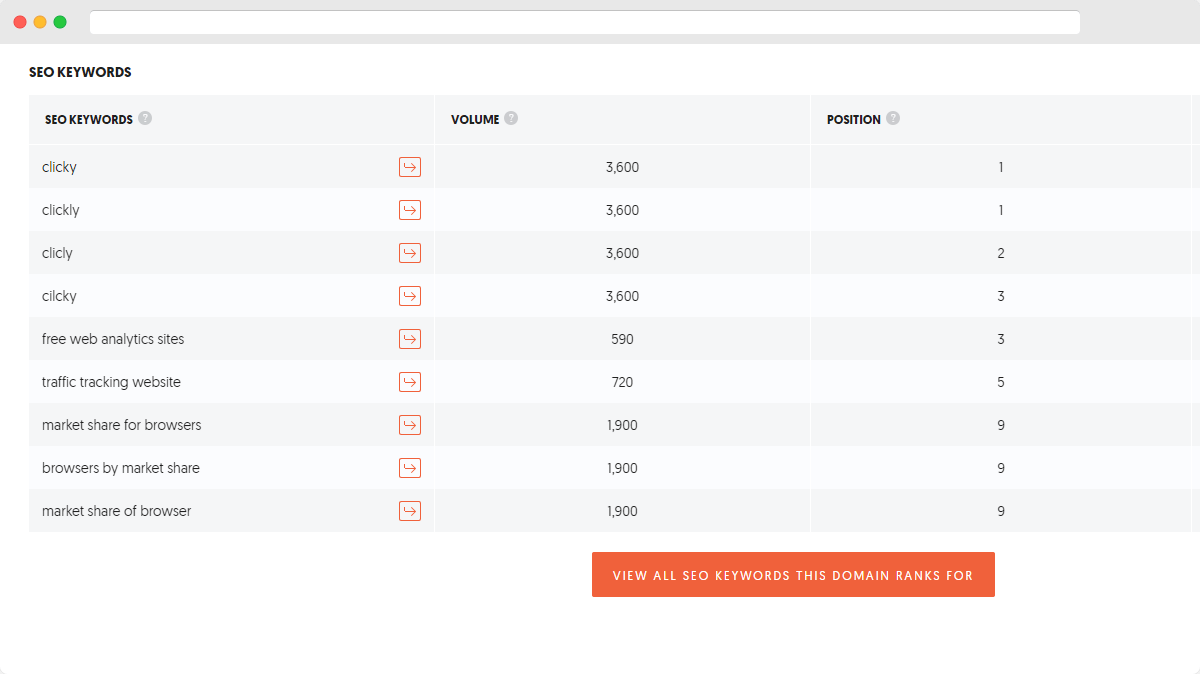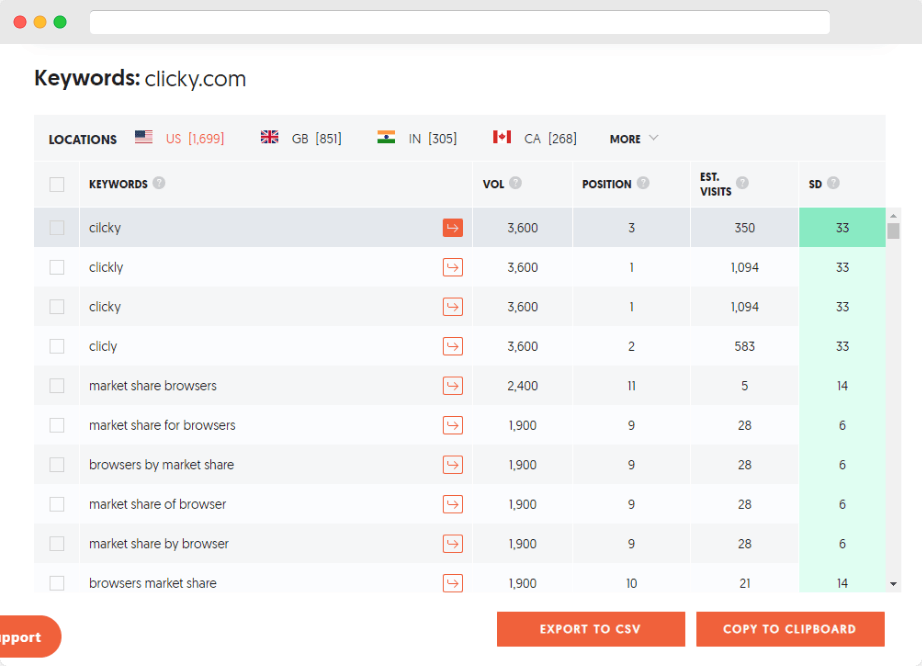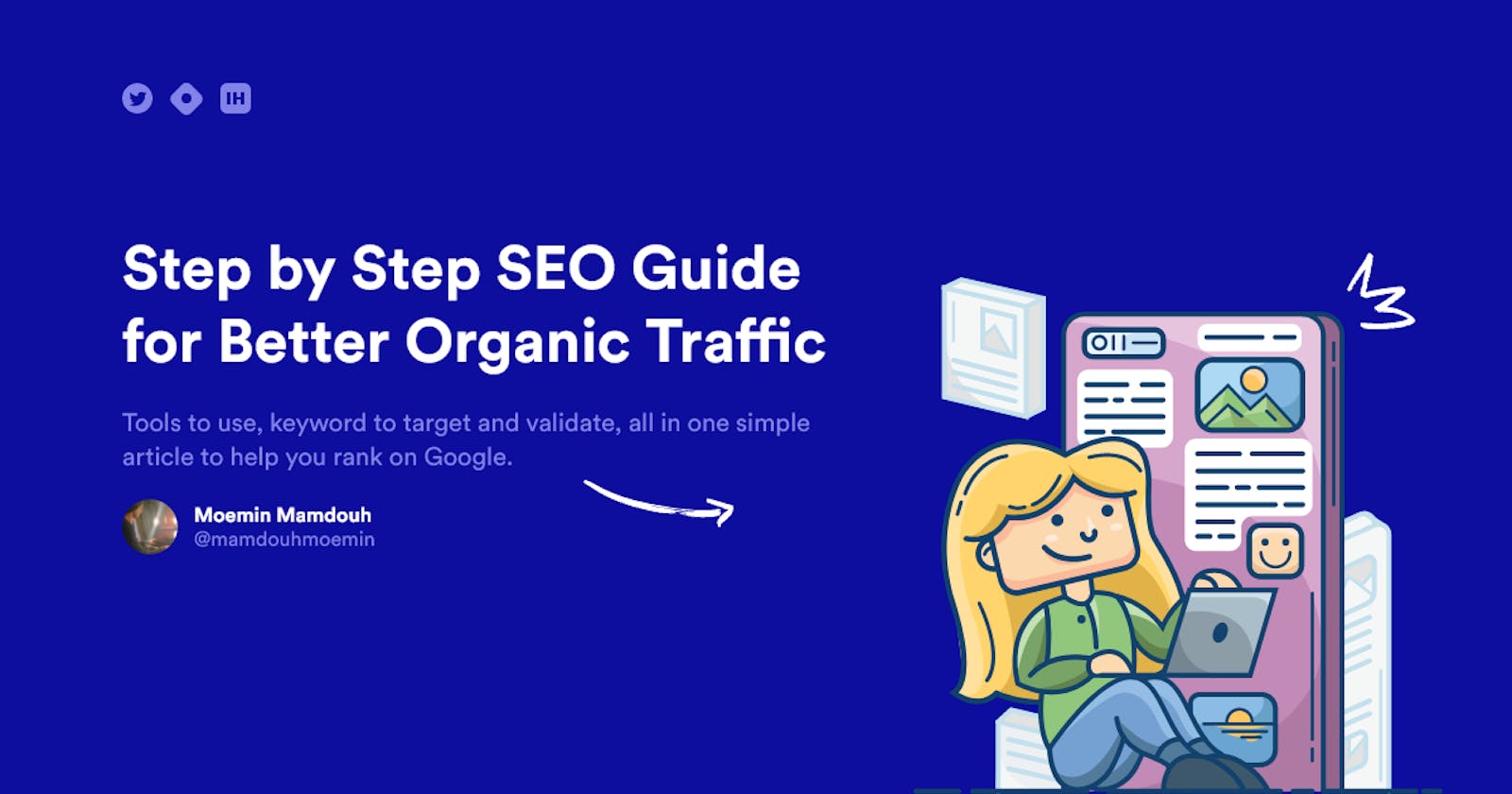You can find the links to all tools used at the end of the article.
Paid advertising is great and all, but it stops once the money stops. I'm going to show you a step by step guide on how to do keyword research and use that to your advantage to create compelling articles that could potentially grow organically.
To do this, I'll use Splitbee as an example, it's a web analytics tool.
🎯 Identifying your competitors
You need to first have an idea of who your competitors are in the market. A quick search on Google shows Clicky to be a similar service. Great, you've identified one competitor, we need more. Head over to SimilarWeb, search for your competitor's website, and scroll down to competitors. Pick 3-4 competitors and write them down somewhere.
📝 Finding the keywords
You have 3-4 competitors written down, time to know what they're ranking for. Head over to UberSuggest, search for your competitors' websites, scroll down until you see 'View all SEO keywords this domain ranks for" click.

Now click on 'Export to CSV'. You now have a list of keywords in a searchable file. Do this for all your competitors.

🔍 Narrowing down the keywords
You'll most likely have hundreds of keywords in 1 CSV file. Import your CSV file into Excel. Apply conditional formatting to these columns:
1- Volume > 1000
2- Position < 20
3- SEO Difficulty < 40
You're basically narrowing down to keywords that receive traffic, are ranked either in the first or second page, and are not too difficult to rank for. Do you just go ahead and create an article with all the keywords you've just narrowed? No. There's still more work to do!
✔️ Validating the keywords
After you've narrowed down the keywords, it's time to validate the keywords via Google Trends and/or Google Keyword Planner. Go to Google Trends and search for the keywords you've just narrowed and make sure to set the region to Worldwide. For example, I now have a keyword 'web stats site'. Is it receiving enough interest? Google's metric is /100. Most popular is 100, least popular is 0, and 50 is half-half. My keyword is spiking, at times it's 90, others 40, and sometimes 0. That's okay, we can gamble.
I now have 1 validated keyword, it's receiving > 1000 traffic per mo, it's relatively low positioned, and isn't difficult to rank for.
🖊️ Writing your articles
Now....do you just use the keyword 'web stats site' in your title? No. Be creative. Write a blog article about 'Analyzing web site stats with Google Analytics'. Sometimes the keywords don't make sense, run it through Ubersuggest again and look through the 'Keyword Ideas' section, maybe you'll find a better keyword.
I hope this was a somewhat helpful article to get you into keyword research and planning. It's a great boost and I think you should take advantage of it to boost your organic traffic!
Tools used in this article:
1- UberSuggest
2- SimilarWeb
Let me know if you have any questions and I'll be more than glad to help!
